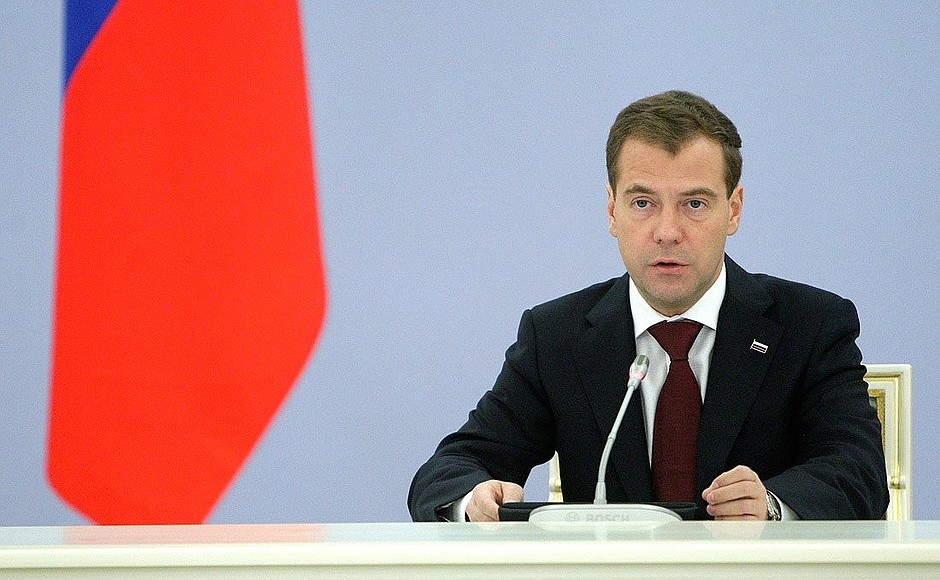
President of Russia Dmitry Medvedev: The subject on our agenda today is rather specific, but very important nonetheless. This is the question of developing modern telecommunications for our armed forces, intelligence services, and law enforcement and security agencies.
Today, we will discuss the draft of the main state policy directions in this area until 2020, and will decide the specific steps to take to implement these policies.
It is absolutely clear that high-speed telecommunications is one of the key factors for strengthening our country’s defence capability and security. A country that has advanced telecommunications technology has good economic and social prospects, and can offer its citizens a higher quality of life. Furthermore, developing telecommunications systems creates an additional incentive for building up many of our science-intensive sectors.
In May this year, I already addressed this issue and visited the Moscow Military District headquarters. We analysed the state and operation of the telecommunications systems at the armed forces’ disposal, and noted that to a considerable extent they are outdated, physically worn out and quite simply need to be replaced. This is also evident during training exercises. It was also evident during the Caucasus campaign in 2008.
Making the transition to modern telecommunications systems requires a lot of effort, just like any transition to something new. We therefore need to concentrate on resolving several tasks.
The first task: our priority is to ensure our national defence and this requires us to modernise our armed forces’ telecommunications systems. Over the next two years, through to 2012, in other words, we need to replace the old analogue systems in the armed forces with digital systems, both at the command centres and in the field. This decision is entirely in accordance with our modernisation programme and efforts to strengthen and develop our armed forces.
Second, we need to encourage the development and production of cutting edge telecommunications equipment and software in Russia. The considerable money that we spend on buying new telecommunications systems should go into our economy and science. I expect to hear specific proposals from the Government in this area.
At the moment, we buy this kind of equipment and software from almost 40 foreign companies. Of course, in some cases we will keep using these companies, but we also need to build up our own capability and make maximum use of our own possibilities for producing equipment and software.
The third task is to develop subsystems for ensuring public security and maintaining law and order. This includes, in particular, the Safe City emergency system and other similar systems. They play a real part in reducing crime on transport systems and in public places. We need to develop these systems simply to give our people a normal environment where they will feel safer and more at ease in public places.
Of course, these advanced telecommunications systems require modern skills and knowledge, and we therefore must ensure a higher quality of training for our telecommunications and data protection specialists. We will also need to make respective decisions here and reflect on how best to improve the system of ongoing training in this area.
Colleagues, we must ensure that our security agencies have the telecommunications they need to be fully protected and guarantee that they can carry out their national defence and security tasks to the highest standard.